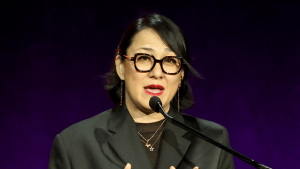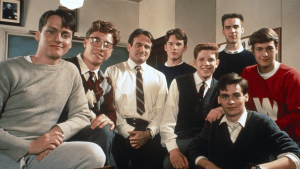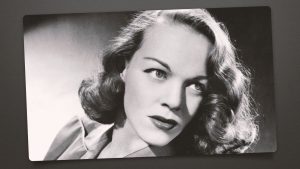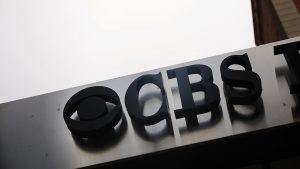
The “Lucky” which precedes the lead character’s name in writer-director Lloyd Lee Choi’s debut drama is obviously meant to be ironic: For nearly the entire movie, Lu may be the unluckiest guy in New York. And yet, this authentic and downbeat immigrant drama questions what luck means in a ruthless, dog-eat-dog city where only the strongest survive. Does it mean making it rich and buying a penthouse in Tribeca? Or does it mean being surrounded by loved ones, wherever you live?
Clearly inspired by the Italian neorealist classic Bicycle Thieves, Lucky Lu follows a Chinese migrant (played by the excellent Chang Chen, Crouching Tiger, Hidden Dragon) whose delivery bike does indeed get stolen towards the start of the film. But the plot then diverges from Vittorio De Sica’s masterpiece in more ways than one, becoming less of a race-against-the clock scenario than a pointed study of both a character and a place.
Lucky Lu
The Bottom Line

Down but not out in the Big Apple.
Venue: Cannes Film Festival (Directors’ Fortnight)

Cast: Chang Chen, Fala Chen, Carabelle Manna Wei
Director-screenwriter: Lloyd Lee Choi
1 hour 43 minutes

After premiering in the Directors’ Fortnight in Cannes, Choi’s promising first feature will hopefully find a home in the U.S. But these are tough times for indies, as evidenced by the 22 producers and executive producers (among them Forest Whitaker) listed in the credits. There are no car chases in Lucky Lu, and there’s not even really a bike chase. Yet a great many hands and wallets were needed to make this gritty little movie happen.
Let’s not forget the film was also shot before President Donald Trump took office for the second time, which surely won’t make financing these kinds of projects any simpler. It certainly won’t make life easier for a character like Lu, who’s been in the U.S. for five years and desperately struggles to make ends meet just as his wife, Si Yu (Fala Chen), and young daughter, Yaya (Carabelle Manna Wei), arrive from China to settle in with him.
Set over the course of a day, Choi’s script (based on his short Same Old, which played in Cannes three years ago) charts Lu’s wobbly and hazardous path as he tries to get the money needed for an apartment whose shady broker ran off with the deposit. This comes after Lu’s electric bike vanishes into thin air, forcing him to either find a new one or pay his food delivery boss a $1,000 replacement fee.

Nearly every relationship in Lucky Lu is transactional, whether someone is trying to swindle Lu out of more cash or possibly lend him the needed funds, as seen in a sequence set in a clandestine Chinatown loan brokerage. Nobody has time for small talk or even a friendly hello, and although Lu is surrounded by migrants like himself, none of them want to help a fellow expat out — some for reasons we learn about later.
His only solace is his family, who arrive jet lagged and loaded with baggage, settling into a flat that Lu is not even sure to rent. While Si Yu begins to clean the place up, Yaya decides to tag along with her dad, in yet another nod to the De Sica movie. The girl begins to see how America has not been kind to Lu over the years, even physically (“You look so thin,” she and others comment). We soon understand that Lu did have a good life at some point, opening and running a soup dumpling restaurant, until the whole thing fell apart.
Choi deftly navigates between Lu and Yaya’s points of view as the day drags on and the situation becomes increasingly dire. In one memorable scene, the industrious little girl wanders out of a laundromat while Lu is off looking for more dough, finding her way into an open house for a multimillion dollar brownstone nearby. She sneaks upstairs and steals a fancy watch, aware of what her father needs but is unwilling to do himself.
It’s those subtle dramatic beats that give Lucky Lu its power, in a pared-down narrative that’s less of a realistic thriller — as with both Bicycle Thieves and the Paris-set The Story of Souleymane, which made a splash in Cannes last year — than an intimate two-way drama where the hero starts to see life from another angle.
Artfully lensed in real Manhattan locations by Norm Li (Blue Sun Palace), the film depicts NYC as a cold, dark place where the sun barely shines for most of the story. Lu is often framed through windows, doorways or hallways, accentuating his loneliness, while the backdrop is all brick walls, steel bars and cluttered storefronts. When Yaya steps off the bus from JFK and takes a look around for the first time, she notices all the garbage lining the streets. Did they really wait all those years to come to this?

The director never sugarcoats life in the Big Apple for Lu, his family, nor for the rest of the striving migrant underclass. There are no moments of triumph or dreams coming true, no holding hands and cheering together at a Yankees game. At best, one or two people reach out and finally do Lu a solid, even if he swears that he’ll pay them back.
Flawed but humane, he’s clearly the good guy in the movie while the city itself is the baddie, sweeping up new arrivals and turning them into cold-hearted cogs in the machine. Once Lu accepts this reality, he can perhaps begin to focus on what matters most. And then, with lots of hard work, and maybe a little luck, he might make it in New York.
#Chang #Chen #Forest #WhitakerProduced #Cannes #Drama






